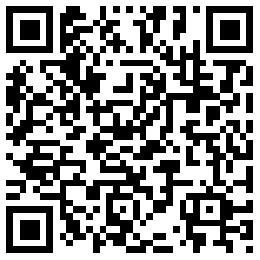On December 8–9, the Global MOOC Alliance and the UNESCO Institute for Information Technologies in Education jointly hosted the Global MOOC and Online Education Conference 2022 (GMOEC 2022) online, with the theme of “Digitalization of Education Leads the Future.” The event attracted over 6,000 participants.
At the forum, the representative of China’s Ministry of Education introduced developments related to MOOCs and online education in China. With 61,900 courses, China has built an extensive MOOC network serving over 370 million registered users, which has notably contributed to education equity nationwide and the current reform in higher education. Especially in 2022, the Chinese Ministry of Education implemented a strategic plan to advance the digitalization of education and launched the Smart Education of China portal, the world’s largest database of educational resources. Since its launch, the portal has generated 29.2 billion views and served nearly 500 million learners, becoming a major platform for promoting reform and cooperation in higher education. China’s proposals included: (1) accelerating resource sharing to improve educational equity; (2) increasing the application of technology to transform the higher education sector; (3) improving standards and regulations to ensure progress and innovation in online education; and (4) increasing international cooperation to build a global community in education.
Prof. Wang Xiqin, Chair of the Board of the Global MOOC Alliance and President of Tsinghua University, unveiled a report prepared by more than 200 experts from 72 higher education institutions (HEIs) around the world. The report, entitled Unlimited Possibilities: Global Report on the Digitalization of Higher Education, is based on experiences and practices in various countries and international organizations. It summarizes consensuses, trends, and changes in the digital transformation of higher education and suggests solutions to the current challenges. In the report, a global higher education digitalization index was created to give a precise and comprehensive picture of the evolution and prospects in the field and provide a useful reference for policy makers.
The following experts shared views and reflections on the development of MOOCs and the digital transformation of education in their respective countries: Prof. Adagbonyin Obiazi, Chair of the African Engineering Deans Council and Dean of Engineering at Ambrose Alli University in Nigeria; Prof. Asha S. Kanwar, President of the Commonwealth of Learning; Prof. Giuliano Noci, Vice Rector of the Polytechnic University of Milan; Prof. Claudio Pastenes, Vice President of the University of Chile; Prof. John Hennessy, former President of Stanford University and recipient of the 2017 Turing Award; and Ms. Paulina Pannen, Chair of the Indonesia Cyber Education Institute. Mr. Zhan Tao, Director of the UNESCO Institute for Information Technologies in Education (IITE), made concluding remarks at the conference.
Four subforums were held in parallel on December 8, gathering over 50 guest speakers and experts from UNESCO and prestigious HEIs and enterprises in around 20 countries to discuss and exchange views on digitalization in higher education.
Officials from the UN system and various countries attended the main session of the forum convened on December 9 and delivered opening speeches. They included Stefania Gianini, UNESCO Assistant Director-General for Education, Andreas Schleicher, Director for Education and Skills at the Organization for Economic Cooperation and Development, Nadiem Anwar Makarim, Minister of Education, Culture, Research and Technology of the Republic of Indonesia, and Ulanbek Mambetakunov, Minister of Education and Science of the Kyrgyz Republic.




